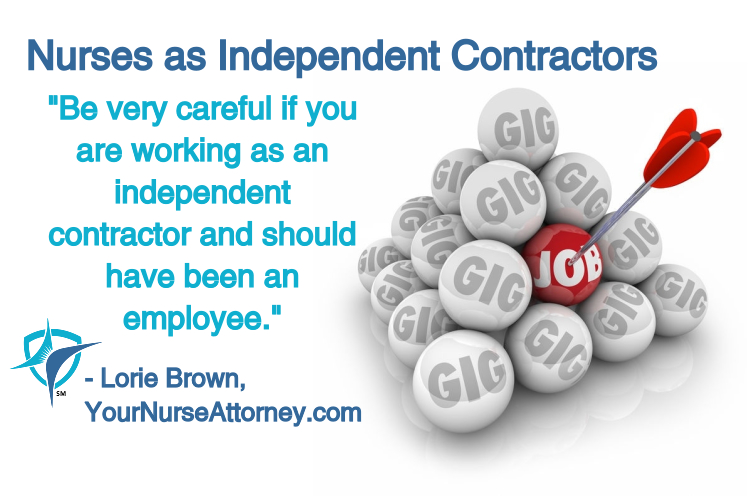A new law went into effect in California regulating gig labor, and while it was largely aimed at companies like Uber and Lyft, its ripple effects reach far beyond the tech and transportation sectors. Designed to protect workers from being misclassified as independent contractors, the legislation has unintended consequences for healthcare professionals—especially registered nurses (RNs), certified registered nurse anesthetists (CRNAs), and nurse practitioners (NPs).
The intent behind the law was to ensure that workers classified as employees would receive the benefits and protections that they are entitled to: minimum wage, sick pay, unemployment insurance, and employer-paid taxes. But many independent healthcare workers could now be reclassified as employees—whether they want to be or not.
The ABCs of Employment Status
This law stemmed from a 2018 California Supreme Court ruling that created a strict legal framework—known as the ABC test—to determine whether someone can legally be considered an independent contractor.
To pass the test, all three of the following must be true:
A. The worker is free from the control and direction of the hiring entity in connection with the performance of the work.
B. The work performed is outside the usual course of the hiring entity’s business.
C. The worker is customarily engaged in an independently established trade, occupation, or business of the same nature as the work performed.
For nurses, CRNAs, and NPs—who typically must follow hospital policies and perform work central to the healthcare facility’s operations—Part B becomes the stumbling block. Their work is not outside the usual course of the hiring entity’s business. That means many could fail the ABC test and no longer qualify as independent contractors.
What This Means for You
If you’re working as an independent contractor in a clinical setting—especially in California—this law could affect your classification and your taxes, liability, and benefits.
Potential Benefits of Reclassification:
- Access to benefits like health insurance, paid time off, and unemployment protections
- Legal safeguards such as workers’ comp and wage protections
- Union eligibility, in some cases, which can enhance bargaining power
Potential Downsides:
- Loss of flexibility in setting your schedule or choosing your clients
- Reduced ability to deduct business expenses
- Lower take-home pay if benefits replace your current rate premium
- Possible limitations on side gigs or moonlighting
And, importantly, if you’ve been misclassified as a contractor when you should have been an employee, the IRS or state tax agencies can demand back taxes, penalties, and interest—and that can be a serious financial hit from your employer and if you have not paid the proper taxes yourself.
Not Just a California Issue
While California’s law is one of the strictest, over 20 states have adopted the ABC test in some form. So, if you think this doesn’t apply to you just because you’re not on the West Coast—think again. As gig work and flexible contracting grow more common in healthcare, more states may tighten their regulations to follow suit.
Key Takeaway
Being an independent contractor has definite perks: higher pay, schedule flexibility, and tax write-offs. But those benefits come with greater responsibility—and increasing scrutiny.
If you are working as a 1099 nurse, review your contracts and seek legal or tax advice to ensure your classification is accurate and sustainable. Misclassification can lead to back taxes, disqualification from benefits, and disciplinary risk if found in violation of labor laws.
In today’s healthcare landscape, staying informed isn’t just smart—it’s essential to protecting your license, livelihood, and financial future.









NURSE UNDONE says
Great to know. Wonder if you are covered under workmen’s comp should you get hurt while working as an independent .
Thanks for helping the pets get adopted , nice to read good news.
Anthony says
Is an organization like Clipboard Health that classifies their nursing staff as 1099 operating legally?
LORIE A BROWN, R.N., M.N., J.D. says
You might want to call your state Department of Labor and ask.